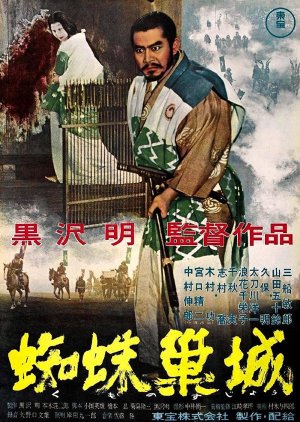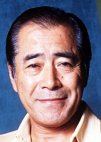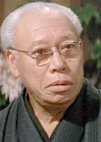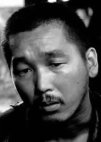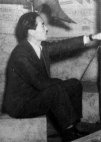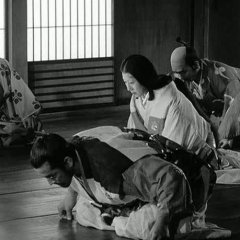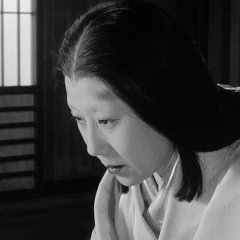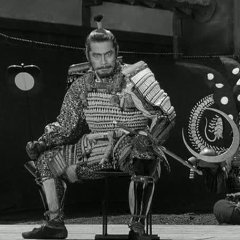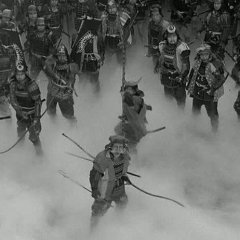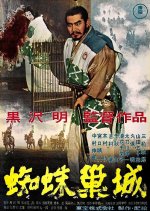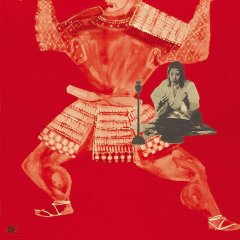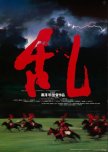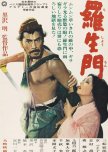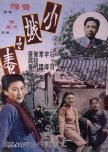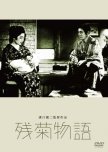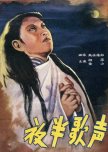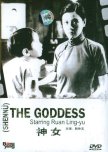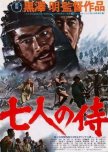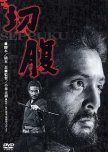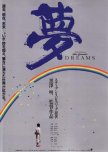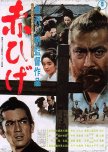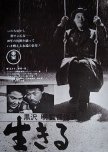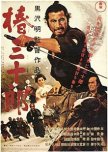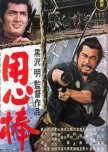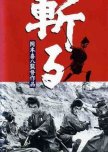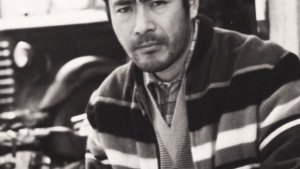 An Ultra Fan's Guide to Mifune Toshiro
An Ultra Fan's Guide to Mifune Toshiro - Français
- 中文(台灣)
- Español
- English
- Titre original: 蜘蛛巣城
- Aussi connu sous le nom de: Kumonosu jo , Spider Web Castle , Trono de Sangre , 蜘蛛巢城
- Scénariste et Réalisateur: Kurosawa Akira
- Scénariste: Oguni Hideo, Kikushima Ryuzo, Hashimoto Shinobu
- Genres: Historique, Drame
Distribution et équipes
- Mifune Toshiro Rôle principal
- Yamada IsuzuWashizu AsajiRôle principal
- Shimura Takashi Rôle Secondaire
- Chiaki MinoruMiki YoshiakiRôle Secondaire
- Kubo AkiraMiki YoshiteruRôle Secondaire
- Sasaki TakamaruTsuzuki KuniharuRôle Secondaire
Critiques

Cette critique peut contenir des spoilers
Oh, what a tangled web we weave...
The legendary team of Kurosawa Akira and Mifune Toshiro tackle Shakespeare's Macbeth in Throne of Blood. While hitting most of the bard's main beats, Kurosawa takes the murderous couple to feudal Japan in this highly stylized film.Mifune plays Washizu (Macbeth) caging the frenetic energy always just below this actor's surface. Washizu and his friend Miki are returning to their lord's keep, aptly named Spider Web Castle, after defeating an opposing lord's army in battle. Lost in the woods, they come across a ghostly forest spirit who foretells their future. Washizu will become the next lord of Spider Web Castle and Mizi's son will become it's future lord. Both men are incredulous as they make their way to the castle through the fog, even more incredulous when the prophetic events begin to come true.
Washizu becomes the leader of the North Garrison where he and his wife (the talented Yamada Isuzu) live a comfortable life. Lady Washizu is not content though and stirs up feelings of ambition and dread in her husband telling him that the lord may seek to kill him seeing him as a rival, especially if Miki tells of the prophecy. Washizu is not convinced but when the lord ominously drops into their hands, it doesn't take much convincing from his wife to perform the murderous deed. Miki throws in with him out of his own ambition or pragmatism. The prince and Noriyasu (Kurosawa regular-Shimura Takashi) flee to their old enemy and make a pact with him.
Lady Washizu unrelentingly keeps up the murderous whispers until man after man is slain in order to keep their new status. Even as they work to stay on top, the doubts and guilt begin to build until the subtle and not so subtle signs of madness begin to creep in. With each passing day his men's doubts grow as does the strength of their enemy.
There is all sorts of imagery in this film starting with Kurosawa's trademark wind and rain ushering in dark changes. Fog blinding the men as they try to find their way ushers in chaos and uncertainty. Washizu and Lady Washizu act almost as if they are wearing masks. She barely moves and when she does it usually means someone is about to die as the only sound you hear is the rustling of her silk dress as it slithers across the floor. At the end when the opposing army shows up, they are highlighted in sunlight while Washizu always seems to be in rain or fog or dim, claustrophobic lighting. The name Spider Web Castle reflects the deadly web the couple find themselves in, one they cannot extract themselves from.
The forest spirit tells Washizu and Miki,
"Human beings are so strange,
they are terrified to look into
the bottom of their hearts."
Washizu, his wife and Miki end up looking into their hearts and find more darkness than they were aware of. Paranoia drives Washizu to have his best friend murdered and see treachery all around him. The spirit's prophecy causes the chaos that sinks into a man's soul inciting greed and winning at any cost to take over. Was the spirit prophesying or setting events into motion with the prophecy? Did the men act of their own will or were they victims of predestination?
The sets were amazing. Always looking for that perfect shot, Kurosawa didn't like the initial castle set and had another imposing one built on Mt Fuji. In two different scenes, especially the final one, it didn't take much acting to show fear when arrows were being fired as they were really being shot at the actors.
Kurosawa wasn't afraid to use silence and time to create tension in scenes, something rarely used in today's films. The scene with the silent castle as the troops slowly approached not knowing if they would receive a welcome or death was particularly powerful.
Wind and fog come again at the end of the film along with the chorus, reminding the viewer that desire and fate are never changing. The castle of delusion is never far away when one gives into the baser ambitions at the bottom of their hearts. Throne of Blood uses no iambic pentameter, nor Shakespearean quotes, maybe it's the stronger for it.
9/29/22
Cet avis était-il utile?

While chatting with the super nice lady that worked there after the show, she shared a bit about why she chose this film to screen and how it connected to the Stratford Festival that was going on. At the time of our visit, the play being performed at the festival was Macbeth, and she explained that the production was actually more inspired by this film version than Shakespeare’s original. Honestly, when we walked in, we had no idea the film was related to Macbeth, but when she explained it, we both had that collective “ohhh!” moment as it all clicked into place.
The film itself was very intriguing. It’s a black-and-white film, and we watched it with English subtitles. There were a few moments where the scenes dragged a bit (like a five-minute horse-riding sequence that kind of pulled you out of the story), but overall, it flowed and transitioned nicely. The acting and music were genuinely very captivating, and some of the effects and scenes were super impressive for the time. We really enjoyed the film, though to be fair, that might’ve been partly because of the whole experience of seeing it on the big screen. I would love to check out some of Akira Kurosawa's other works as well after this.
Cet avis était-il utile?

